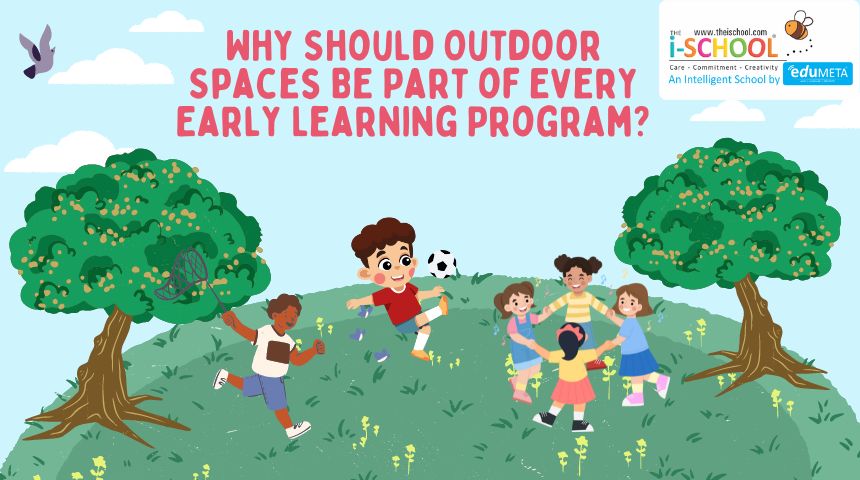Why Should Outdoor Spaces Be Part of Every Early Learning Program?

Outdoor spaces play a crucial role in the development and education of young children. Incorporating outdoor environments into early learning programs offers a myriad of benefits that enhance physical, cognitive, social, and emotional growth. In this blog, we will explore why outdoor spaces should be an integral part of every early learning program.
Physical Development
Focus Keyword: Why Should Outdoor Spaces Be Part of Every Early Learning Program?
One of the most significant benefits of outdoor play is its contribution to physical development. When children are outside, they have the opportunity to engage in activities that promote gross motor skills such as running, jumping, climbing, and balancing. These activities help strengthen muscles, improve coordination, and enhance overall physical fitness. Additionally, outdoor play encourages children to be active, which helps combat childhood obesity and promotes a healthy lifestyle from an early age.
Cognitive Development
Outdoor spaces provide a rich environment for cognitive development. Nature offers endless opportunities for exploration and discovery, fostering curiosity and a sense of wonder. Activities such as observing plants and animals, engaging in nature scavenger hunts, and exploring different textures and materials stimulate cognitive growth and critical thinking skills. Furthermore, outdoor learning can enhance problem-solving abilities as children navigate natural obstacles and engage in unstructured play.
Social and Emotional Development
Outdoor play is vital for social and emotional development. When children play outside, they often engage in cooperative play, which teaches them important social skills such as sharing, taking turns, and negotiating. Outdoor environments also provide a space for children to develop friendships and learn how to work together as a team. Emotionally, being in nature has a calming effect and can reduce stress and anxiety. Children learn to manage their emotions better and develop resilience as they face and overcome challenges in the outdoor setting.
Connection to Nature
Why Should Outdoor Spaces Be Part of Every Early Learning Program?
Connecting with nature is an essential aspect of early childhood education. Spending time outdoors helps children develop an appreciation for the natural world and instills a sense of environmental stewardship. This connection to nature fosters a sense of responsibility and encourages children to care for their environment. Moreover, experiences in nature can spark a lifelong interest in science and the natural world, laying the foundation for future learning and exploration.
Enhanced Learning Experiences
Outdoor spaces can enhance traditional classroom learning by providing a dynamic and interactive environment. Lessons that might be static indoors come to life outside. For example, a lesson on plants and growth becomes more engaging when children can plant seeds, water them, and observe their growth over time. Math concepts like counting and measuring can be applied to real-world scenarios in the garden or playground. The outdoor environment serves as an extension of the classroom, offering diverse learning experiences that are both fun and educational.
Encouraging Creativity and Imagination
The natural world is a boundless source of inspiration for young minds. Outdoor play encourages creativity and imagination as children create stories, build structures, and invent games using natural materials. Unlike structured indoor environments, outdoor spaces offer the freedom for children to explore and create their own experiences. This unstructured play is crucial for developing creativity, innovation, and independent thinking.
Conclusion
Why Should Outdoor Spaces Be Part of Every Early Learning Program? The answer lies in the multifaceted benefits that outdoor environments provide for young children. From physical and cognitive development to social and emotional growth, outdoor play is an indispensable component of early childhood education. Incorporating outdoor spaces into early learning programs enriches the educational experience, fostering well-rounded, healthy, and happy children.
By valuing and utilizing outdoor spaces, educators can create a holistic learning environment that supports the comprehensive development of every child. Investing in outdoor play is not just an enhancement of the curriculum but a fundamental necessity for nurturing the next generation of learners.
